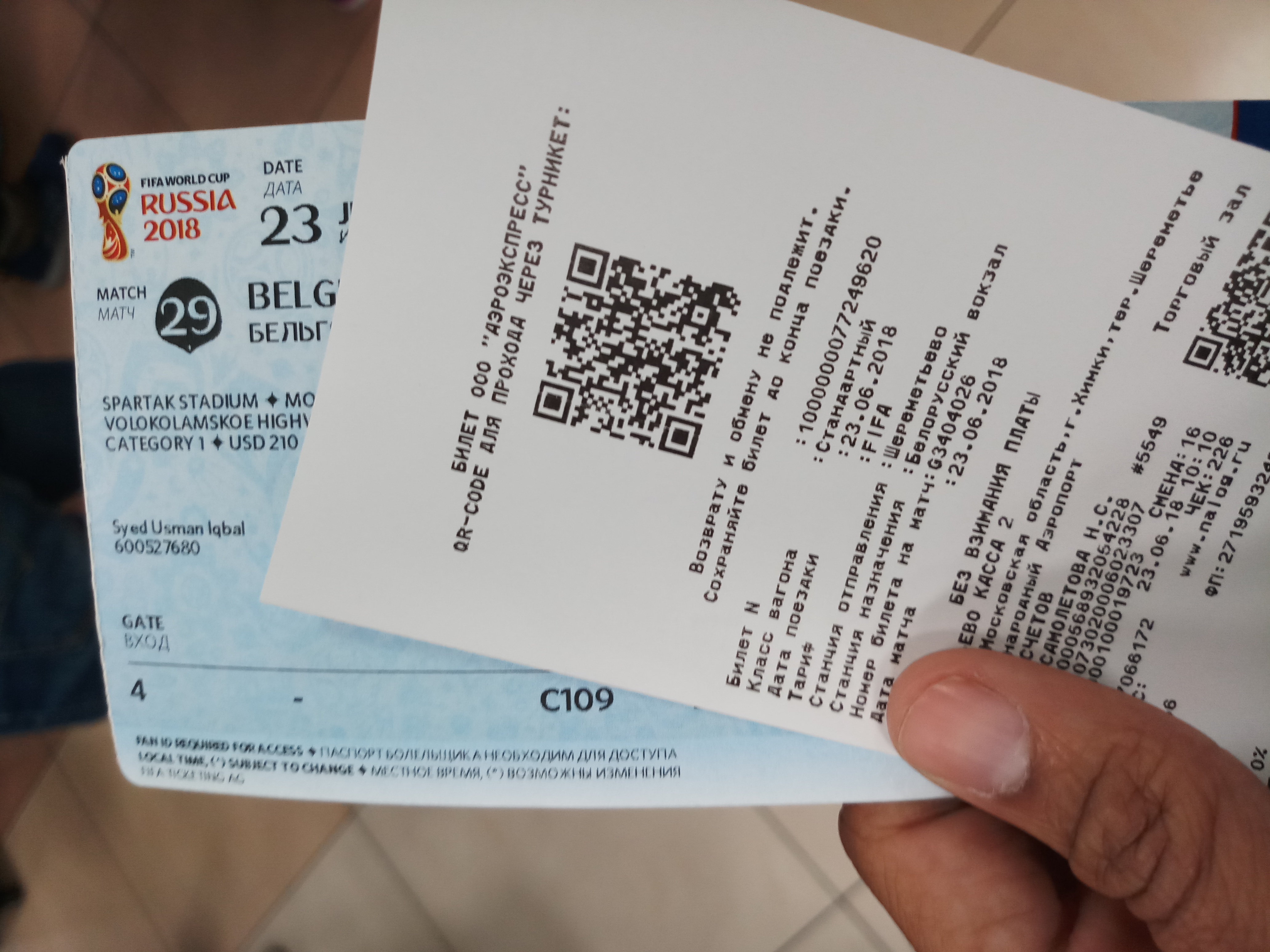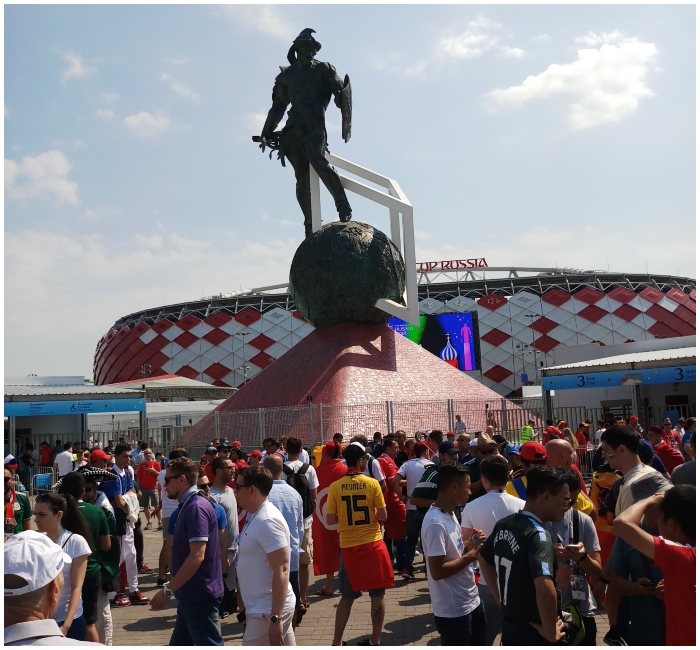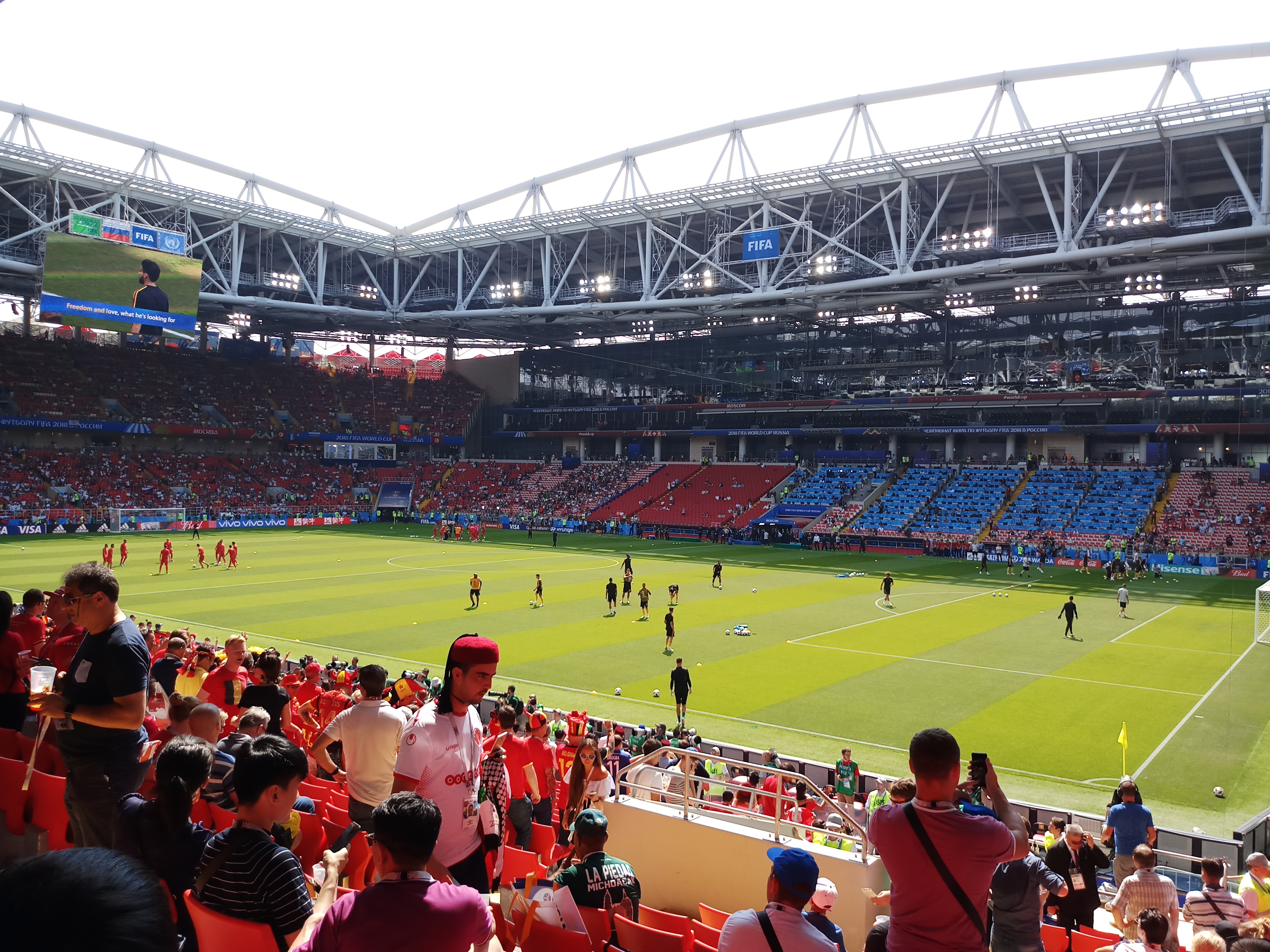The time had finally come to make my way to Moscow to watch the FIFA World Cup. I had been watching the first eight days of the tournament on television at my home in Karachi. But now, it was time to make my dream come true: I was travelling to Moscow to watch the matches live, the tickets for which I had bought eight months ago.
Essentials for travelling to this World Cup are your fan ID, match tickets, passport, $1,000 and personal belongings.
Yes, it’s as simple as this. The fan ID is your visa to Russia. To get a fan ID you must buy a match ticket from fifa.com and then go to fan-id.rus to apply for it. The fan ID requirements are a clear passport-sized photo, a valid passport and match tickets. You can print your fan ID from the email they will send.
Although the tickets to this World Cup are expensive compared to the 2014 World Cup in Brazil, there are many free amenities for match goers. I will elaborate on them later.
My flight from Karachi to Moscow was via Fly Dubai. The fare was reasonable. It is a budget airline so I did not pay for meal on board.

The contents of my bag were essentials for any football traveller. Team replica kits of the teams I will be watching, a made-in-Pakistan football, football shoes, clothes and toiletries.
At Karachi airport, they asked for my fan ID. Carry a front and back copy of it, along with your passport. The process is quick and easy.
My flight from Karachi was delayed, so I was worried if I could make my connection to Moscow in time. All turned out well in the end, though.
I landed in Moscow at 8am Saturday, June 23. In Moscow, the immigration officer asked for the fan ID and passport. I showed them to him, and I was through. The anticipation was building up already, I had a match to attend the same day: Belgium vs Tunisia.
The inter-city public transport is free. There is a train which connects the airport to the city. It costs 500 Robles. I presented my match ticket and fan ID and they issued me a free ticket. I got off at a stop called Belorusskaya. From here, I got to the metro station. After I showed my match ticket and fan ID, the operators let me in the metro for free. Life’s good!
I took the metro to my stop Park Kultury, which is next to the Moskva River. It was a hot day in Moscow: I’d left the heat of Karachi to experience some more heat in Moscow. Oh well.

The boardwalk next to the Moskva River made for a pleasant walk. I arrived at my hotel, which was just as intriguing as its name: Winterfell. You guessed it: it has been inspired by the hit show Game of Thrones, and it was amusing to be crashing there during my stay in Moscow.
We checked in and made our way to Spartak Stadium to watch Belgium vs Tunisia. The metro ride was free and the cabins were full of fans singing songs. Outside the stadium, fans were in colourful kits in support of their teams and the ambience was so electric, we forgot our jet lag and joined in.

We made our way to our seats and watched the Belgian team warm up. The match kicked off, and the score was 2-1 to Belgium just 17 minutes into the game. It was a great match, with Belgium winning 5-2. We were ecstatic that we got to see a goal fest.
After the match we took photos with Belgian and Tunisian fans and made our way back to our hotel. The metro ride back was, yes that’s right, free.
That same night, we made our way to the fan fest to watch Germany vs Sweden on the big screen. It was unforgettable. Tony Kroos’ last-minute winning goal sent the crowd into a frenzy. The midfielder had single-handedly kept a 10-men Germany in the World Cup. Of course, it called for an entire night of celebrations. And celebrate we did, with thousands of cheering fans.
Comments
Post a Comment